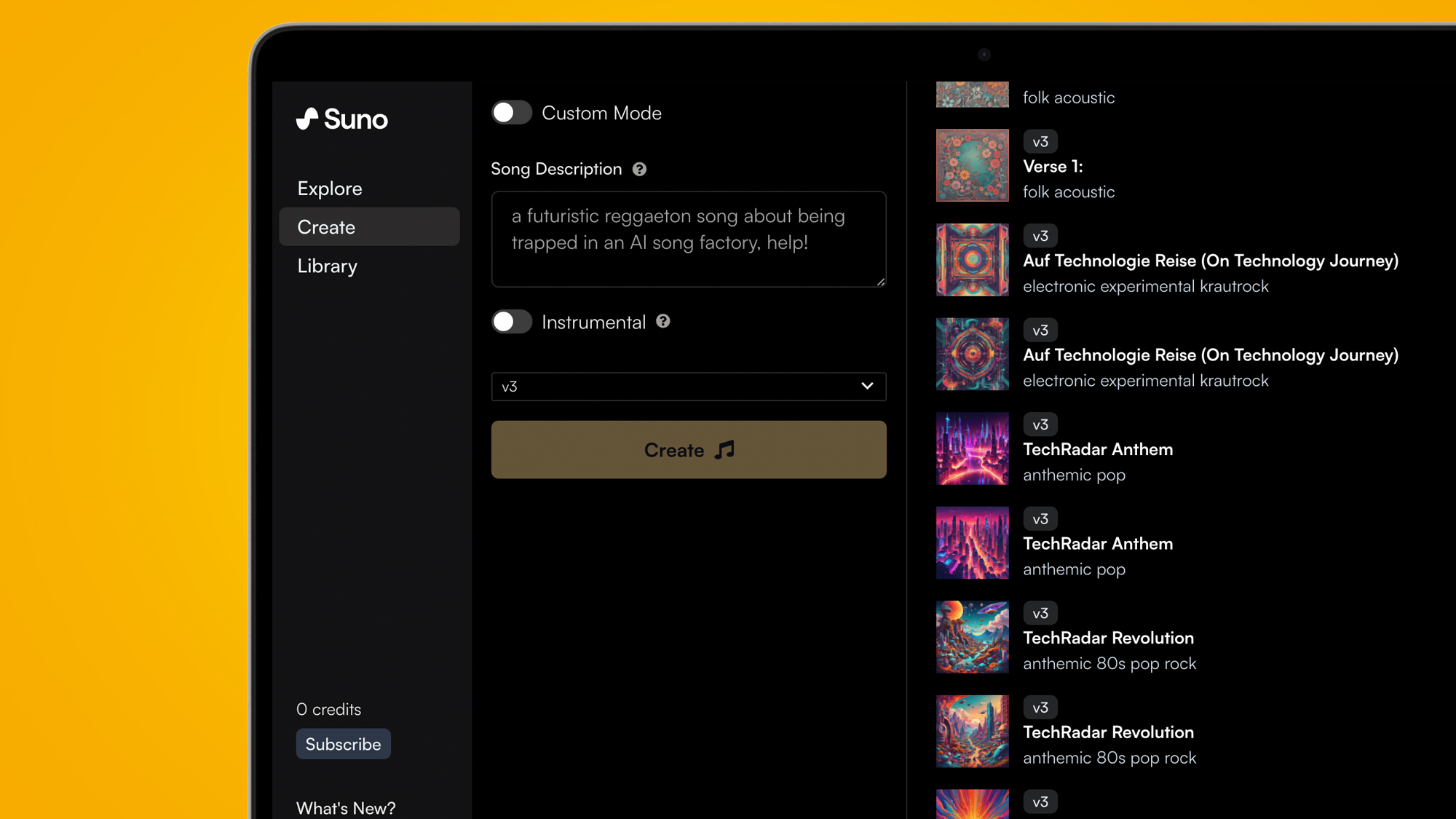AI music makers face recording industry legal battle of the bands that could spell trouble for your AI-generated tunes
RIAA files lawsuit against generative AI audio startups Suno and Udio

Artificial intelligence music makers Suno and Udio have been hit with major lawsuits filed by the Recording Industry Association of America (RIAA) and major music labels for copyright infringement. The suits mark the latest battle over generative AI and synthetic media and the debate over whether they represent original creations or infringement of intellectual property rights.
The RIAA was joined by Sony Music Entertainment, UMG Recordings, Inc., and Warner Records, Inc. in the lawsuits. Suno was sued in the United States District Court for the District of Massachusetts, while Udio developer Uncharted Labs, Inc., was sued in the United States District Court for the Southern District of New York. The complaints allege that both companies have copied and exploited copyrighted sound recordings without permission.
Both Suno and Udio translate text prompts into music, much like other tools can create images or videos based on a user’s suggestion. While there are plenty of other music AI developers, Suno and Udio were likely picked because of their relatively successful products. Suno AI is part of the Microsoft Copilot generative AI assistant, while Udio went viral for the creation of “BBL Drizzy.” The recording agencies say the music generated by the AI models is not original but just a reworking of copyrighted material. Notably, the groups suing are making an effort to sound like they aren’t against the tech, just how it’s used by those companies.
“The music community has embraced AI and we are already partnering and collaborating with responsible developers to build sustainable AI tools centered on human creativity that put artists and songwriters in charge,” RIAA Chairman and CEO Mitch Glazier said in a statement. “But we can only succeed if developers are willing to work together with us. Unlicensed services like Suno and Udio that claim it’s ‘fair’ to copy an artist’s life’s work and exploit it for their own profit without consent or pay set back the promise of genuinely innovative AI for us all.”
Press pause
This could be pivotal in the fight over music AI, which has been escalating for a while. The viral deepfakes of Ghostwriter and his multiple synthetic songs with voice clones of real artists attest to the growing interest, and to the RIAA, danger, of this technology.
TikTok and YouTube have also been drawn into the fray. Earlier this year, music by UMG artists, including Taylor Swift, was temporarily removed from TikTok due to unresolved licensing issues, partly driven by concerns over AI-generated content. In response to similar issues, YouTube introduced a system last fall to remove AI-generated music upon the request of rights holders. In May, Sony Music issued warnings to hundreds of tech companies about the unauthorized use of copyrighted material, signaling the industry’s proactive stance against unlicensed AI-generated music.
The RIAA wants the courts to rule Suno and Udio infringed on their copyrights, get them to pay for it, and stop them from continuing to do so. Unsurprisingly, the companies being sued disagree.
Get daily insight, inspiration and deals in your inbox
Sign up for breaking news, reviews, opinion, top tech deals, and more.
“Our technology is transformative, it is designed to generate completely new outputs, not to memorize and regurgitate pre-existing content,” Suno CEO Mikey Shulman said in a statement. “We would have been happy to explain this to the corporate record labels that filed this lawsuit (and in fact, we tried to do so), but instead of entertaining a good faith discussion, they’ve reverted to their old lawyer-led playbook. Suno is built for new music, new uses, and new musicians. We prize originality.”
The lawsuit won’t immediately affect Suno and Udio and their customers barring some unlikely early ruling from the courts. But, a legal battle at this level suggests any easy compromise is off the table. The move may speed up the timetable for the creation of a regulatory framework and accompanying laws to back it up, however.
Depending on how that goes, people using Suno, Udio, and other AI audio makers may have to remove the music from anything they have published. I wouldn’t stake everything on the current AI music scene staying the same, but the technology will almost certainly still be around regardless of the lawsuit, just perhaps with new controls and official approval of any songs for training AI models.
You might also like...

Eric Hal Schwartz is a freelance writer for TechRadar with more than 15 years of experience covering the intersection of the world and technology. For the last five years, he served as head writer for Voicebot.ai and was on the leading edge of reporting on generative AI and large language models. He's since become an expert on the products of generative AI models, such as OpenAI’s ChatGPT, Anthropic’s Claude, Google Gemini, and every other synthetic media tool. His experience runs the gamut of media, including print, digital, broadcast, and live events. Now, he's continuing to tell the stories people want and need to hear about the rapidly evolving AI space and its impact on their lives. Eric is based in New York City.